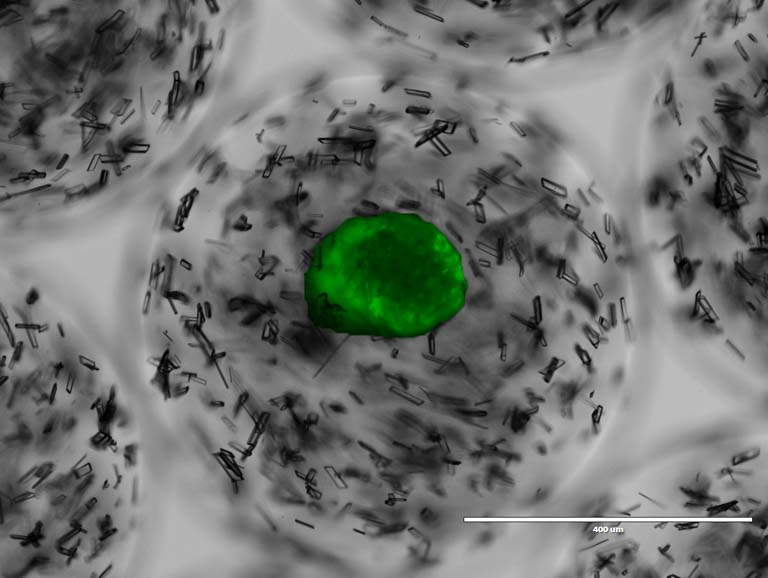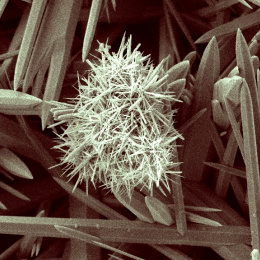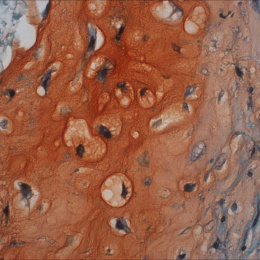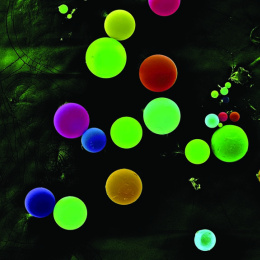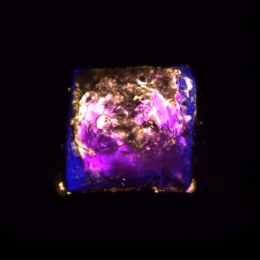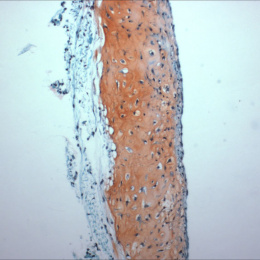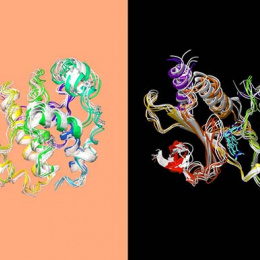Overcoming Rejection: Implantable Devices for Drug Delivery 5
Overcoming Rejection: Implantable Devices for Drug Delivery 5
Joshua C. Doloff, Shady Farah, Atieh Sadraei, Daniel G. Anderson and Robert Langer
Koch Institute at MIT, MIT Department of Chemical Engineering, Institute of Medical Engineering and Science
Our research focuses on improved drug delivery technologies to improve biomedical treatments used in different disease models and clinical applications. In general, implanted devices and transplanted organs/tissues instigate severe rejection responses, including inflammation, immune attack, fibrosis, and scarring, resulting in loss of device function and therapeutic failure.
To combat these damaging responses for as long as possible, we have created crystal drug formulations to achieve long-term release, thereby eliminating the need for repeat (ie., weekly) visits to the doctor for injections. This image is focused on Type 1 Diabetes treatment. It highlights biomaterial devices with co-delivered glucose-responsive, insulin-secreting pancreatic beta-cells and crystalline drug. By preventing host rejection and elongating therapeutic success for as long as possible, patients can avoid daily finger prick glucose measurements and insulin injections, eliminating pain and inconvenience.
